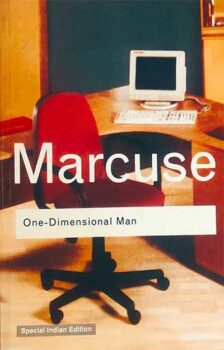Conceptual clarity and shrewd maneuvers are necessary to combat neo-fascism, a powerful social movement from above. Neo-fascism in India, inspired by German Nazism and Italian Fascism of the inter-war period- characterised by chauvinistic nationalism, anti-communist rhetoric, militarism, and extreme intolerance towards dissent voices- ultimately an open war against the pre-set ‘enemies’ of the ‘divine’ nation. Furthermore, neo-fascism in India acquired a new meaning by embracing neoliberal capitalism during the 1980s. Through appropriating the state and civil society, the Hindutva neo-fascist forces tarnished the democratic progress achieved by the historically marginalised through intense struggles from below. Moreover, the Hindutva neo-fascism spoiled the multi-cultural, secular fabric of the Indian society.
 Hindutva neo-fascism, a mega project orchestrated through an entire corpus of machinery including the Parivar organizations, corporate media, far-right intellectuals, statist institutions, affiliated caste organisations, and other extremist religious identity groups. By imposing a hyperreality from above, neo-fascism paints a single-coloured (saffron) India where the critical rationality of the individual was superseded by unquestionable obedience to authority. The dissent voices were pulverised and critical pedagogy was replaced with mythical narratives. The academic space was filling up with the Hindutva-brigade Professors, who blatantly defended the ideology of the ruling dispensation. The Hindutva neo-fascism imposing one-dimensionality from above and resistance to such unilateral impositions must be placed in the multi-dimensional sphere and should nurture the values of democracy, freedom, and the peaceful coexistence of communities.
Hindutva neo-fascism, a mega project orchestrated through an entire corpus of machinery including the Parivar organizations, corporate media, far-right intellectuals, statist institutions, affiliated caste organisations, and other extremist religious identity groups. By imposing a hyperreality from above, neo-fascism paints a single-coloured (saffron) India where the critical rationality of the individual was superseded by unquestionable obedience to authority. The dissent voices were pulverised and critical pedagogy was replaced with mythical narratives. The academic space was filling up with the Hindutva-brigade Professors, who blatantly defended the ideology of the ruling dispensation. The Hindutva neo-fascism imposing one-dimensionality from above and resistance to such unilateral impositions must be placed in the multi-dimensional sphere and should nurture the values of democracy, freedom, and the peaceful coexistence of communities.
Towards Multi-dimensionality
Sixty years back, Herbert Marcuse in his influential text ‘One-Dimensional Man’ highlighted the dangers of the one-dimensionality of modern industrial capitalism, where technological rationality colonized everyday life, therefore, weakening or disappearance of all genuinely radical critique, and the integration of all oppositions in the established system. Marcuse observed that industrial society combines terroristic political coordinationand non-terroristic economic-technical coordination, in sum a ‘totally administered society’. The most disturbing aspect was the harmonisation of the opposites- the melting away of the tension between reality and appearance, and even irrationality represented as rationality. The power of negative thinking- the critical power of reason is being silenced and reconciled all oppositions.
Marcuse called for the ‘great refusal’, a multi-dimensional expression of system negation, offering a constellation of goals and forces such as the de-commodification of labour and technology, elimination of ‘profitable wastes’ imposed by industrial capitalism, moving towards racial equality, women’s equality, restoration of nature, leisure, abundance, and peace. Such a movement can bring together a global alliance of transformative forces. Marcuse is very relevant in the contemporary political scenario that powerful social movements from above erased the livelihood space of the poor in an unprecedented manner and the issue-based movements are not up to the mark in dealing with authoritarian oppressions. Therefore, a social movement from below- a creative negation- negating the historically imposed social hierarchies through creative/artistic expressions and behaviours seems to be relevant. Through creating and practicing alternatives to the instrumentalities of capitalism, through a systematic attack on the patriarchal values/patterns of life by upholding the values of freedom and equality, and through practicing the environmentalism of the indigenous people, social classes can move forward to an equitable, environmental friendly and peaceful society.
Resisting Hindutva Neo-fascism
Marcuse was much concerned about the instrumentalities of modern technological society, while the Hindutva was so fascinated by its virulent form- a militarised technological society, a nuclearized masculine Hindutva Bharat. Militarism was not merely an attempt to generate false consciousness but rather rooted in the very ideology of Hindutva. Thus, the Hindutva neo-fascists use both ideological and military state apparatus to exercise power from above channelized through the sangh ‘octopus’ in the society. Therefore, resisting such sheer oppression from above must have an ideal social space where the victims of neo-fascism can come together and resort to common strategies. The neo-fascist forces in India use the fanaticist version of religion which has nothing to do with the spiritual essence of Hinduism. Hinduism adheres to multiplicity and is not antagonistic to other belief systems. Like Hinduism, the soul of all religions including the Adivasi worship systems is not in conflict with any other worship systems. That is why the image of M.K. Gandhi is still haunting the Sangh Parivar.
Besides re-invoking the spiritual essence of religions, a complete negation of the instrumentalities of power through cherishing the values of freedom and fraternity, people can get out of the neo-fascist trap. In a fascist society, people even forget to laugh or are surrounded by the images of horror laughs, therefore re-inventing little spaces for laughing at the iron structures of power is the need of the time. History shows that artistic creations played a vital role in resisting fascism or at least responding to it. A cartoon, a caricature, a song, or a poem can have an impact on a hopeless society. Neo-fascism in India uses all the institutions in the society including the caste institutions and families; therefore, negating the structural rigidities of those social institutions is vital. People should get out of the bracketed freedom of modern society and strive for full freedom, the emancipation of individual self, and the liberation of the communities.
It was not a surprise that the leader of neo-fascist India is hesitant to meet media, because he fears criticism. Their ideology and programmes are open violence against critical rationality, dissent voices, and alternative ways of life. Rather, the Hindutva neo-fascist engagements in the society foster unquestionable obedience wrapped with ultra-nationalism. The RSS, the intellectual nerve of the sangh parivar, a hierarchical and cadre-based organisation with high esteem for patriarchal values, has strong similarities with the Nazi system. The knowledge transmission in RSS Shakha is strictly non-argumentative, fundamentally an epistemological violence against modern knowledge systems. Moreover, the Sangh pedagogy perpetuates ‘epistemological closure’ in the discursive realm, obliterating the possibilities of critical knowledge production.
Therefore, rational criticisms towards an open, free and environmental friendly society are significant. We cannot expect it from the sangh silenced academicians of the higher education institutions, rather from the intellectuals who are active in the parallel media hubs, social activists who think beyond the parochial cultural identities and interests, artists, film-makers, story tellers, poets, enlightened student community, like-minded political parties, socially responsible academic intellectuals and progressive civil societal organisations.
P.M. Joshy teaches political science under the University of Kerala.

